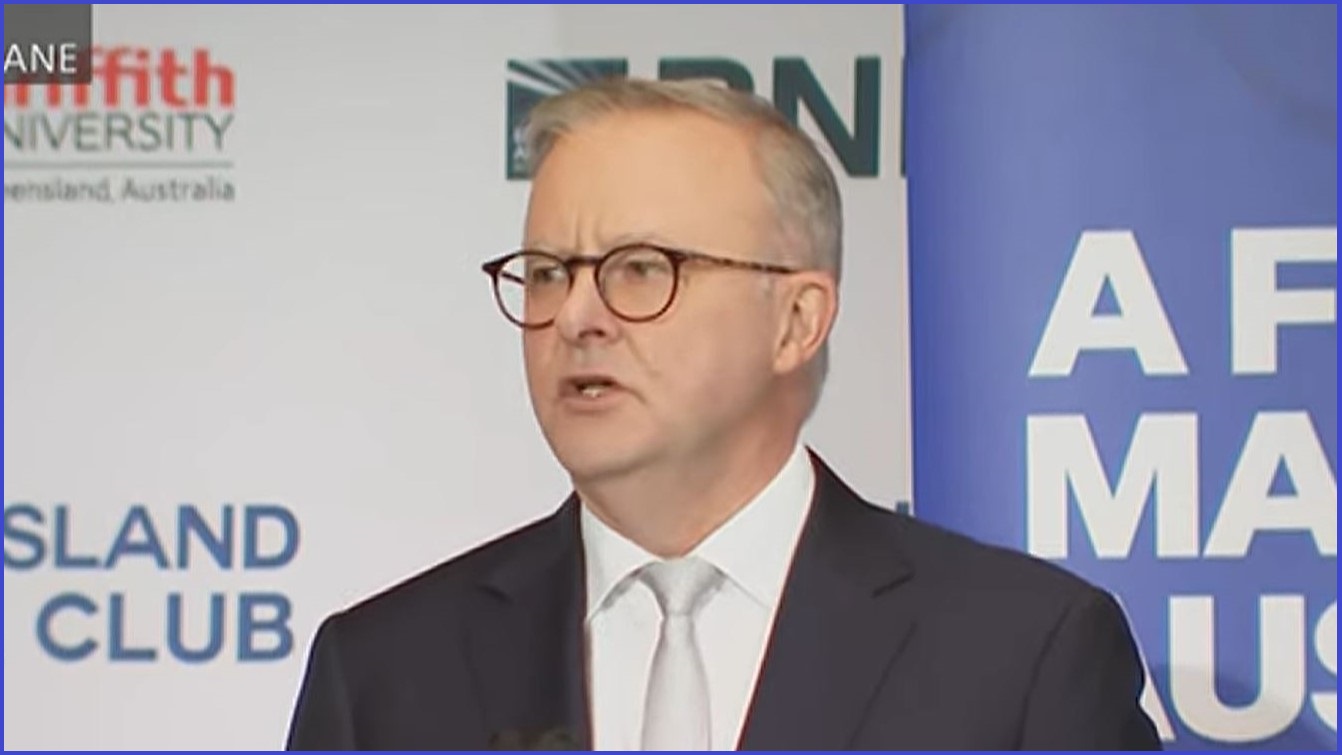The federal government will directly intervene to support and subsidise key growth areas such as clean energy and innovative technologies in a significant policy shift that Prime Minister Anthony Albanese will take to the next election.
In a speech to the Queensland Press Club on Thursday, Albanse set out a “more strategic and more sophisticated” approach to industrial policy to match the approach taken by other nations including in the United States’ Inflation Reduction Act, and which will see the government offer direct support to key industry sectors.
A number of existing and new policies, to be unveiled in the May budget, will be brought together through new legislation – the Future Made in Australia Act – which the Labor government will introduce to Parliament this year.
In his speech, Albanese said economic policies around the world have changed and developed following the Covid pandemic, and Australia’s peers are moving towards direct intervention to support national sovereignty.
“We need to be clear-eyed about the economic realities of this decade, recognising that the game has changed and the role of government needs to evolve,” Albanese said.
“Government needs to be more strategic, more sophisticated and a more constructive contributor. We need sharper elbows when it comes to marking out our national interest.”
The new Act will likely include concessions, grants and the underwriting of certain projects, particularly in the clean energy space. It will also bring together existing initiatives such as the $15 billion National Reconstruction Fund and $1 billion in support for solar panel production.
Attracting investment for schemes such as these has “never been a polite and gentle process where every nation gets a turn”, Albanese said.
“It’s always a contest – a race,” he said. “Australia can’t afford to sit on the sidelines. Being in the race does not guarantee our success but sitting it out guarantees failure. Our government wants Australia to be in it to win it.”
Interventionism is “the new competition”
The government’s new approach is directly modelled on and, in response to, large scale initiatives from other nations focusing on propping up domestic manufacturing and intervening to support certain industries.
These include the US Inflation Reduction Act, which includes US$783 billion of spending on clean energy and climate change initiatives. The US government has also directly intervened to support local semiconductor manufacturing, with the US CHIPS Act including $US39 billion in subsidies for chip manufacturing and a 25 per cent investment tax credit for the costs of manufacturing equipment.
Other nations including in Europe and Japan, Korea and Canada have also announced significant interventionist approaches in recent years.
“All these countries are investing in their industrial base, their manufacturing capability and their economic sovereignty. This is not old-fashioned protectionism or isolationism, it is the new competition,” Albanese said.
“These nations are not withdrawing from global trade or walking away from world markets or the rules-based order – and let me be clear, nor should Australia. We must recognise there is a new and widespread willingness to make economic interventions on the basis of national interest and national sovereignty.”
Bringing together existing policies
The new act will underpin the government’s recently announced $1 billion investment in domestic solar panel manufacturing, which Albanese said would take Australia “from pit to panels”.
In an effort to compete with China-based giants currently dominating the production of solar panels, the package includes production subsidies and grants to be delivered by ARENA.
But critics of the program have pointed out the difficulties Australian companies will have in competing with these global giants.
“The manufacturing industry has been a bloodbath over the past 15 years,” Grattan Institute energy program director Tony Wood said.
“This idea of making solar panels makes no more sense than making electric cars in Australia. This is a very dangerous place for young, commercial players.”
It will also include the $15 billion National Reconstruction Fund, a flagship Labor policy at the last federal election.
There has been recent controversy over whether this fund is truly “open for business”, with it accepting expressions of interest only through a contact form on its website earlier this year.






